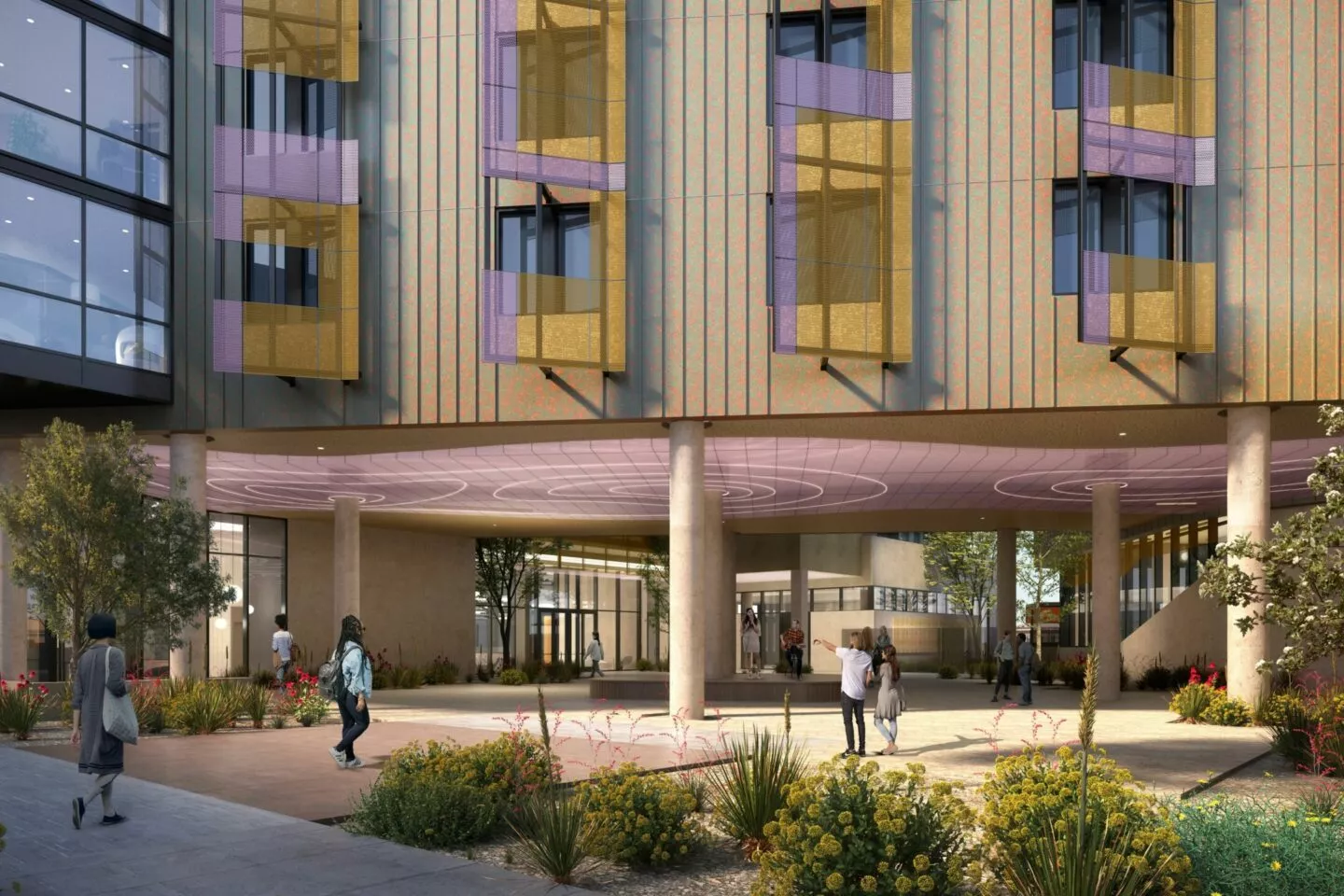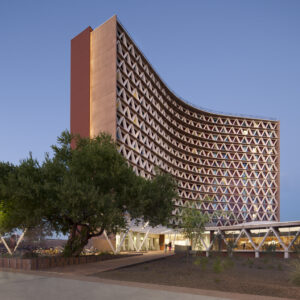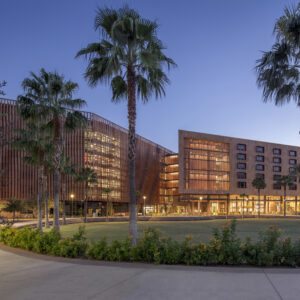HIDA Living/Learning Community
Client
American Campus Communities, Arizona State University
Location
Tempe, AZ
The Herberger Institute for Design and the Arts (HIDA) Living/Learning Community exemplifies how an innovative mixed-use campus project can create a unique residential experience and support student needs in a distinct educational program.
By blending spaces for living, learning, dining, and making, the tailor-designed building offers opportunities for both artistic exploration and social growth. The design is rooted in the notions of porosity and activation, which serve as foundational elements of the project.
The massing of the buildings combines a strong urban edge with a large campus-facing portal leading to an internal activated plaza, which serves as a central nexus for the mixed-use program. A dynamic lilac ceiling plane weaves together the various outdoor and indoor program elements, creating a fluid and engaging user experience through the site and buildings.

Entering the residence hall from the plaza, a lobby gallery space adorned with student work sets the stage for a living/learning community in support of the arts. An adaptable, centralized studio with movable furniture is surrounded by a series of enclosed workrooms. The connection to the outdoors remains uninterrupted through the floor-to-ceiling glazing, which creates a seamless blend between inside and outside. Moving upward, the residence hall comprises 820 beds organized into semi-suites, punctuated by communal spaces including two-story lounges, where spaces more social in nature, such as shared kitchens, coexist with quieter areas dedicated to focus and study.


Extending from the plaza towards campus is an 11,000-sf structure for the Herberger Institute for Design and the Arts. The building stands as an artistic haven, housing a dance studio, stop-motion studio, and a printing and paper-making studio and garden. Tucked under the mass of the building, a 350-seat dining hall along with a 100-person multipurpose room completes the mixed-use program, offering a variety of venues and seating areas beneath a large sculptural mesh chandelier installation.

The exterior design for the project is a layered study of materials inspired by the natural desert environment. Complementing the subtle palette, iridescent, perforated metal fins and screens animate the façade and create an expressive identity for the building in the otherwise modest campus edge context. They also serve in a functional capacity, mitigating solar exposure and providing privacy for the residences. The project is targeting LEED Gold.


